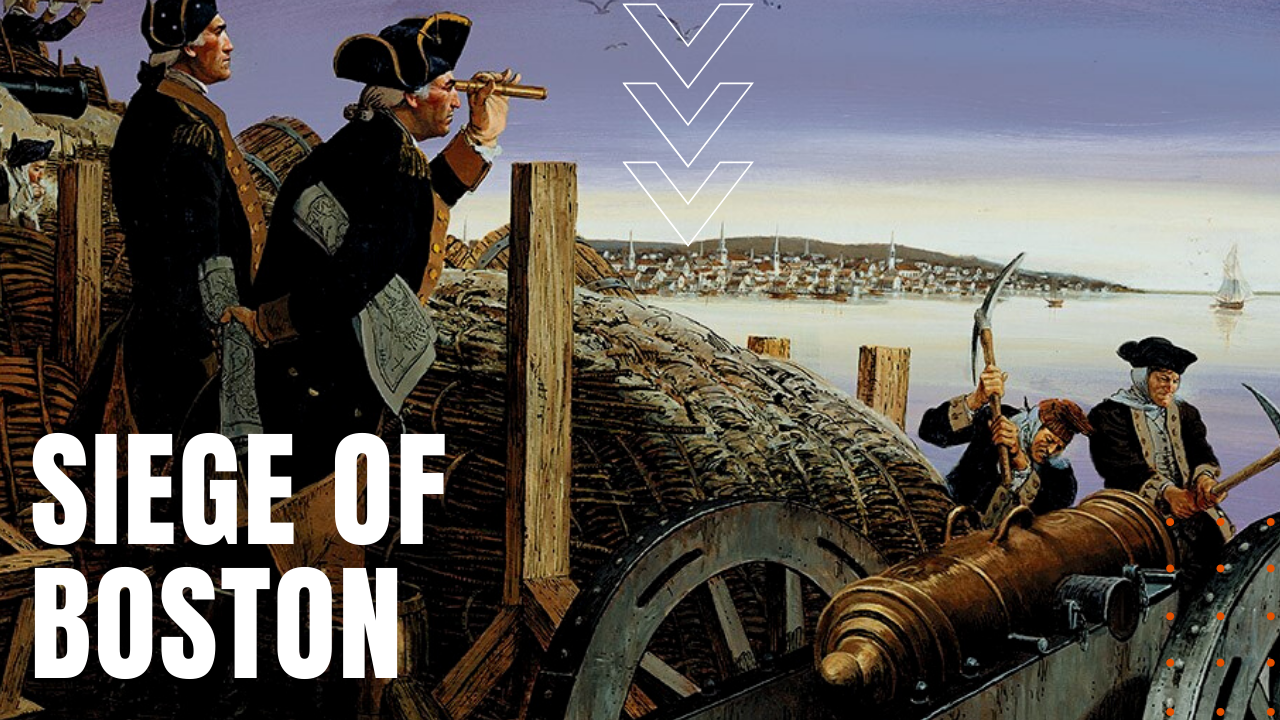The Siege of Boston

After British Parliament and King George III levied taxes on the colonies to help pay for her defense during the French and Indian War, tensions slowly escalated over the issue of taxation without representation in Parliament, leading to the Boston Massacre and the Boston Tea Party to follow.
Once the Revolutionary War broke out following the battles of Lexington and Concord, on June 16th, 1775, having learned about Britain’s plan to build defensive positions in the hills above Boston, colonial militiamen under Colonel William Prescott beat the British to the punch, building high-ground fortifications atop Breed’s Hill, which led to the militia’s outnumbered defeat during the so-called Battle of Bunker Hill.
Revolutionary Forces Make Leeway
Despite the Patriot’s inexperience in the ways of modern warfare, colonial forces inflicted heavy casualties against the British, which in turn boosted their confidence against the world’s leading super power of the day.
Months of stalemate was to follow, until General George Washington arrived in the summer of 1775 to take command of the newly-formed Continental Army. Lacking the necessary armaments to wrest Boston from British control, during the winter of that same year, Colonel Henry Knox organized an expedition to move 60 tons of captured military supplies after colonial militia defeated British positions at Fort Ticonderoga and Fort Crown Point.
Siege of Boston
Of the nearly 50 cannon taken from the British, on March 2nd, 1776, the Siege of Boston began with two days of steady bombardment from the hills above the city. Two days later, after Washington ordered a second cannon placement on Dorchester Heights, the Americans could now bomb British warships at anchor in Boston Harbor, leading British General William Howe to retreat from Boston after an eight-year occupation of the city, setting sail for the British colony of Nova Scotia.
Seven more years of war were to follow, until the October 1781 surrender of Lieutenant General Charles Cornwallis during the Siege of Yorktown. The American Revolutionary War ended two years after that, when Great Britain at long last recognized American independence following the signing of the Treaty of Paris, making the Siege of Boston, one of the earliest victories in the Americans’ push for self-governance.
